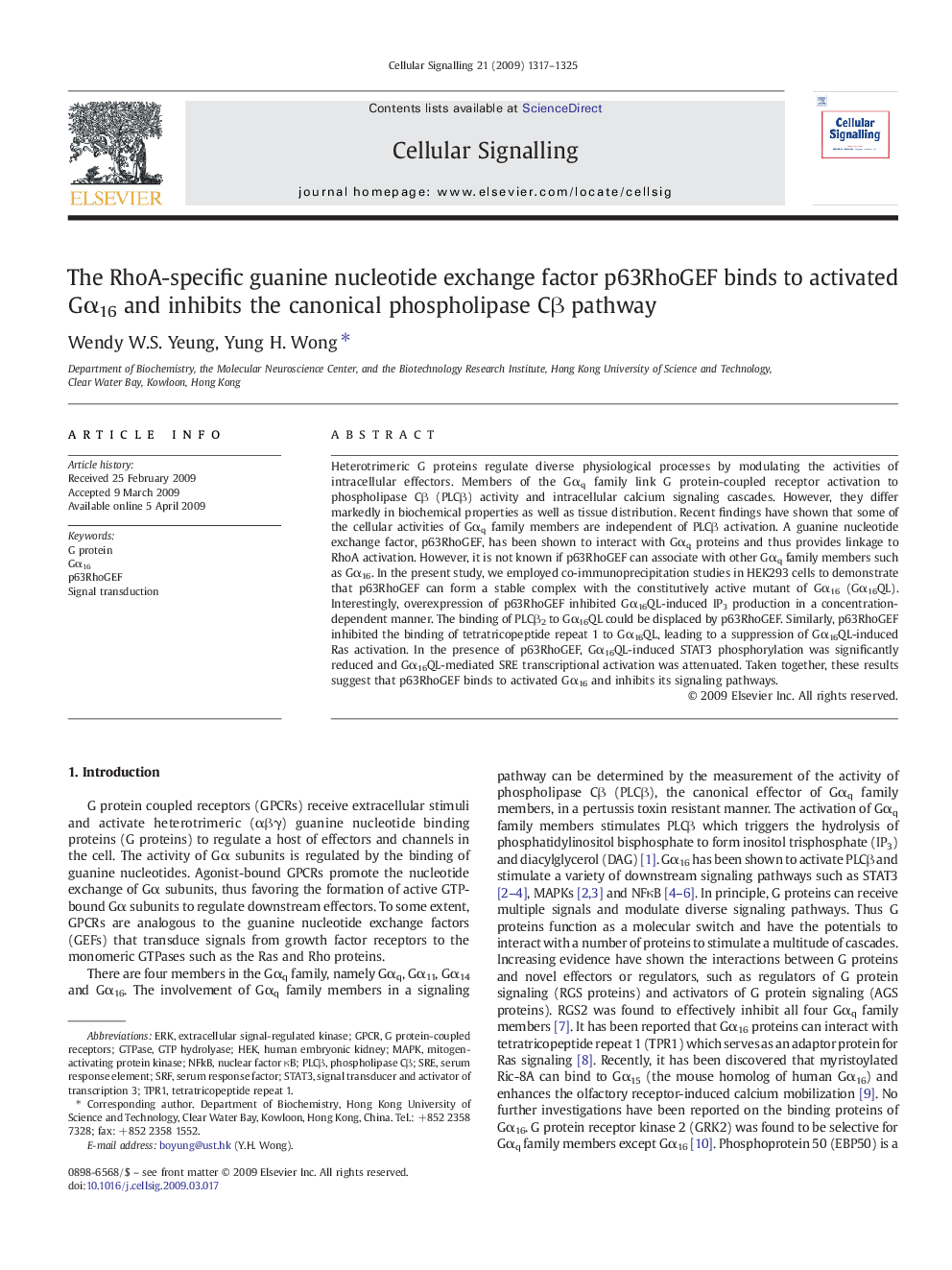| Article ID | Journal | Published Year | Pages | File Type |
|---|---|---|---|---|
| 1963947 | Cellular Signalling | 2009 | 9 Pages |
Heterotrimeric G proteins regulate diverse physiological processes by modulating the activities of intracellular effectors. Members of the Gαq family link G protein-coupled receptor activation to phospholipase Cβ (PLCβ) activity and intracellular calcium signaling cascades. However, they differ markedly in biochemical properties as well as tissue distribution. Recent findings have shown that some of the cellular activities of Gαq family members are independent of PLCβ activation. A guanine nucleotide exchange factor, p63RhoGEF, has been shown to interact with Gαq proteins and thus provides linkage to RhoA activation. However, it is not known if p63RhoGEF can associate with other Gαq family members such as Gα16. In the present study, we employed co-immunoprecipitation studies in HEK293 cells to demonstrate that p63RhoGEF can form a stable complex with the constitutively active mutant of Gα16 (Gα16QL). Interestingly, overexpression of p63RhoGEF inhibited Gα16QL-induced IP3 production in a concentration-dependent manner. The binding of PLCβ2 to Gα16QL could be displaced by p63RhoGEF. Similarly, p63RhoGEF inhibited the binding of tetratricopeptide repeat 1 to Gα16QL, leading to a suppression of Gα16QL-induced Ras activation. In the presence of p63RhoGEF, Gα16QL-induced STAT3 phosphorylation was significantly reduced and Gα16QL-mediated SRE transcriptional activation was attenuated. Taken together, these results suggest that p63RhoGEF binds to activated Gα16 and inhibits its signaling pathways.
